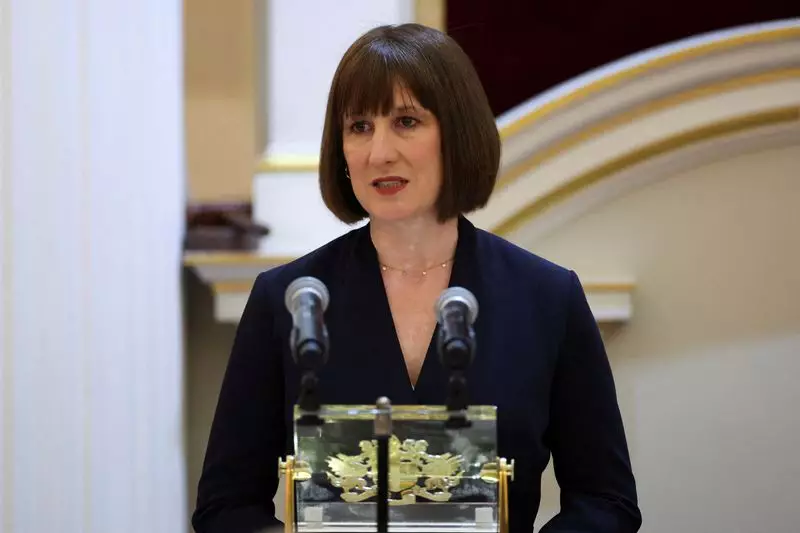As the United Kingdom grapples with financial instability, the roles of Chancellor Rachel Reeves and Prime Minister Keir Starmer are under intense scrutiny. Their government, which has held power since July 2023, is currently facing a turbulent financial landscape marked by escalating government borrowing costs and a depreciating pound. The economic climate, exacerbated by broader global trends, leaves their economic policy decisions tethered to external factors largely outside their control, such as the impending influence of U.S. economic policies led by former President Donald Trump.
In recent discussions, Reeves has affirmed her commitment to addressing the alarming rise in government borrowing costs, emphasizing her non-negotiable fiscal targets. In her recent visit to China, she reiterated the importance of adhering to established fiscal rules. Notably, as bond yields for 30-year gilts reached a peak not seen since 1998 and the British pound plunged to its lowest level since late 2023, the pressure on the government to devise effective financial strategies has intensified. While Starmer has pledged a ‘ruthless’ approach to budget repair, the solutions available to Reeves are limited and mired in complexity.
This scenario raises critical questions about the government’s ability to navigate its fiscal responsibilities without alienating key stakeholders. For instance, announcing future spending cuts could help realign the budget with fiscal goals but risks provoking discontent among party members and the electorate, particularly as the Labour Party grapples with a diverse range of interests.
Reeves’ roadmap to rectify the financial trajectory includes a highly anticipated economic growth presentation in the near future, followed by a detailed Spending Review slated for June. However, reactions to her proposed measures are cautious; many experts suggest that the effects of policy implementations may not yield significant results until the next decade. Consequently, the Labour Party must tread carefully as it decides how to balance fiscal responsibility with public expectation.
Moreover, internal dynamics within the party could complicate efforts, especially given that tax increases appear off the table after Reeves imposed higher social security contributions. As businesses respond by curtailing hiring, the challenge of fostering economic growth becomes progressively daunting. “It’s a tricky balancing act devoid of straightforward solutions,” remarks Hetal Mehta, head of economic research at St. James’s Place.
Looking beyond the UK, President Trump’s expected arrival back into U.S. politics and his rhetoric around implementing import tariffs could complicate the economic landscape. Analysts predict that these tariffs may increase inflation in the U.S. market, leading to a downward pressure on global bonds. With British gilts often mirroring U.S. Treasury yields, fears abound regarding the impact on the UK’s fiscal stability if these tariffs are enacted.
The reliance on foreign investors—once seen as a stabilizing factor—has grown increasingly uncertain. As noted by Sanjay Raja, Deutsche Bank’s chief UK economist, the declining participation of domestic pension and insurance funds in government bond purchases creates a volatile environment in the gilt market. The increased share of foreign ownership also contributes to this volatility, introducing further unpredictability amid already strained financial conditions.
Additionally, the decisions made by the Bank of England regarding interest rates remain crucial yet detached from direct government influence. Current predictions hold a likelihood of the bank implementing modest rate cuts in 2025, yet inflation and rising wage pressures continue to pose significant challenges that the bank must address. Recent positive U.S. payroll data has had immediate effects, such as a drop in the pound’s value, indicating how interconnected global economies influence local financial markets.
Senior economists suggest that while immediate reactions may not be required from Reeves, the broader economic clarity will ultimately define her administration’s effectiveness in revitalizing the UK’s economy. Importantly, this presents an ongoing dilemma for the government: to enact short-term solutions could signal despair, while prolonged inaction may lead to escalating public discontent.
Navigating the intricate blend of domestic fiscal responsibility and global financial influences will undoubtedly define the trajectory of the UK government under Starmer and Reeves. As they confront the profound finding of their fiscal strategies amidst external pressures, their ability to instill confidence—both internally within their party and externally within the economy—will be critical. The road ahead may be fraught with challenges, but a strategic and measured approach could foster economic resilience and sustainability for the UK in an increasingly globalized world.

